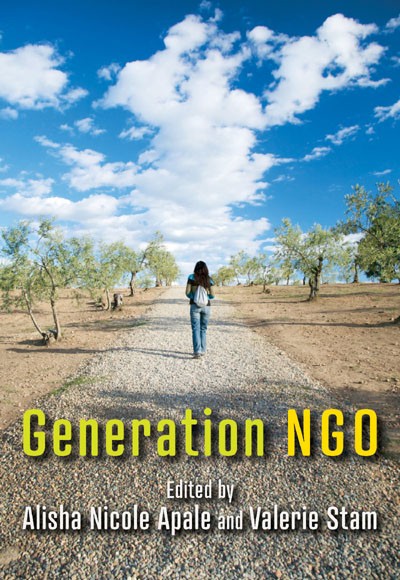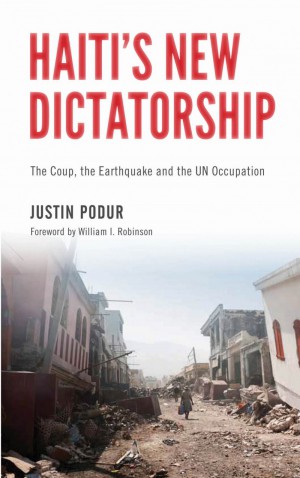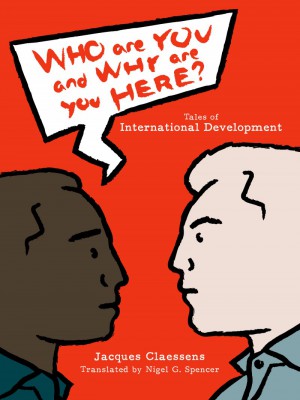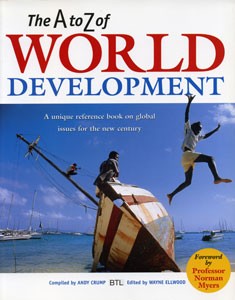
Generation NGO
Young Canadians are increasingly active and engaged in global issues. Many are eagerly poised to contribute–in smaller and even larger ways–to international development and the Canadian national politics that, for better or worse, shape the field.
Generation NGO captures some of the first impressions of these young international development professionals before they are relegated to the dusty corners of memory. It provides snapshots of some of their first experiences with inequality and poverty, power and privilege, stereotypes, identity, social location, prejudice, and injustice. It is as much about questions as it is about answers. These essays illustrate the continual negotiation of development workers in positioning and conducting themselves in a morally and ethically charged profession.
A must-read collection for Canadians contemplating development work abroad, this collection will also provide food for thought for more seasoned veterans of NGO forays long after they have returned from the field.
Praise
The strongest essays in this collection tackle both the preconceptions of average Canadians and the ramifications of those preconceptions. Though none of the essays shies away from big issues such as race, class, gender, and privilege, the best of them expand the personal material into an examination of development theory in action.
– Quill & Quire
The stories collected in Generation NGO should be read by anyone considering working or volunteering in the developing world. Penned by young professionals engaged in overseas development work, these first-hand experiences are told with honest and thoughtful reflection…Generation NGO is about people moved to action by the ideal and challenged by the realities of political structures, culture and human nature.
– Verge Magazine
Travel with these ten thoughtful young Canadians to el otro lado–the other side–and like them you will come back with very different ideas about foreign aid, development, poverty, and Canada.
– Ian Smillie, author of Freedom from Want and Blood on the Stone: Greed, Corruption, and War in the Global Diamond Trade
In these astute and beautifully written personal essays, the authors critically engage with broad issues of development and social justice and interrogate their own role on the global stage. They leave us with much to ponder about the exhilaration, commitment, and ethical ambiguities that characterize the experience of Generation NGO.
– Jacqueline Solway, Professor, International Development Studies and Anthropology, Trent University, and former Director of Trent in Ghana
Generation NGO is essential prior-to-departure reading as more and more young people elect to volunteer overseas. This book is sure to inspire as well as to trouble its readers.
– Sally Humphries, Director, International Development Studies, University of Guelph
This is a must-read for anyone who is planning to travel or has returned from abroad for volunteering or international development.
– Rebecca Tiessen, Canada Research Chair and Associate Professor, RMC, and Adjunct Professor, Global Development Studies, Queen’s University
Young Canadians set forth into the developing world to try to bring about positive change. But while their objectives are not always achieved–or even achievable–their tales show how they themselves are often more transformed in the process than the wide world they seek to help.
– Alexandre Trudeau, director of Refuge: A Film about Darfur
The strongest essays in this collection tackle both the preconceptions of average Canadians and the ramifications of those preconceptions. Though none of the essays shies away from big issues such as race, class, gender, and privilege, the best of them expand the personal material into an examination of development theory in action.
– Quill & Quire
These personal accounts of development theory, taken to and tested in the field, provide excellent insights into what can go wrong, what can go right, what surprises can come up, and what can be painfully, predictably, constant.
– Thomas Meredith, Associate Professor, Department of Geography, McGill University, and Director, Canadian Field Studies in Africa
Contents
| Preface | |
| Introduction | Contexts and Consequences |
| Chapter 1 | Walls Topped with Broken Glass: On Privilege Pike Krpan |
| Chapter 2 | Adding Things up in Namibia Zoe Kahn |
| Chapter 3 | A Night out in Malindi Laura Sie |
| Chapter 4 | No Man Is an Island: Lessons in Interdependence Learned in Barbados Alika Hendricks |
| Chapter 5 | In a Just World, Displacement Would Be Shocking Alisha Nicole Apale |
| Chapter 6 | Salama, vazaha! Maro Adjemian |
| Chapter 7 | Travelling to El Otro Lado Simon Yale Strauss |
| Chapter 8 | Friendship, Inequality, and Professional Development Julia Paulson |
| Chapter 9 | Coming Home to Foreignness Valerie Stam |
| Chapter 10 | You Go and Come Heidi Braun |
| Notes and Acknowledgments |



